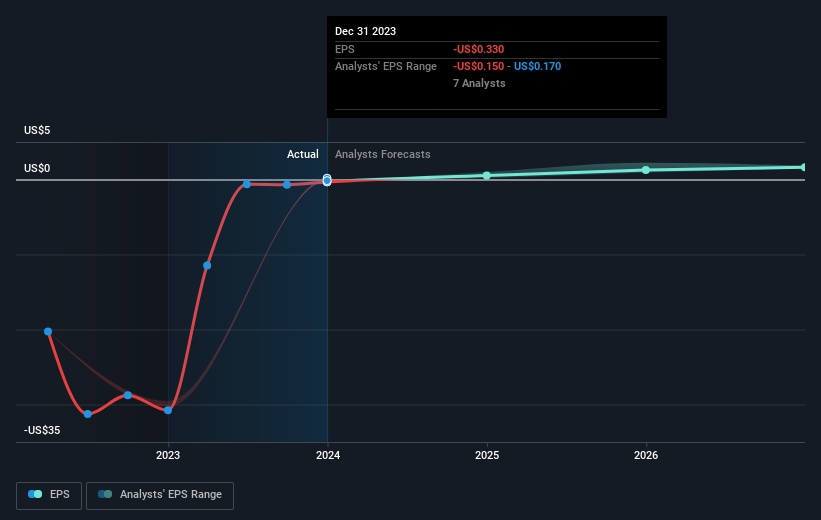Paysafe Limited (NYSE:PSFE) About To Shift From Loss To Profit
We feel now is a pretty good time to analyse Paysafe Limited's (NYSE:PSFE) business as it appears the company may be on the cusp of a considerable accomplishment. Paysafe Limited provides end-to-end payment solutions in the United States, Germany, the United Kingdom, and internationally. On 31 December 2023, the US$865m market-cap company posted a loss of US$20m for its most recent financial year. As path to profitability is the topic on Paysafe's investors mind, we've decided to gauge market sentiment. We've put together a brief outline of industry analyst expectations for the company, its year of breakeven and its implied growth rate.
See our latest analysis for Paysafe
According to the 8 industry analysts covering Paysafe, the consensus is that breakeven is near. They anticipate the company to incur a final loss in 2023, before generating positive profits of US$33m in 2024. Therefore, the company is expected to breakeven roughly a year from now or less! We calculated the rate at which the company must grow to meet the consensus forecasts predicting breakeven within 12 months. It turns out an average annual growth rate of 77% is expected, which signals high confidence from analysts. If this rate turns out to be too aggressive, the company may become profitable much later than analysts predict.
Underlying developments driving Paysafe's growth isn’t the focus of this broad overview, but, keep in mind that generally a high growth rate is not out of the ordinary, particularly when a company is in a period of investment.
Before we wrap up, there’s one issue worth mentioning. Paysafe currently has a debt-to-equity ratio of over 2x. Typically, debt shouldn’t exceed 40% of your equity, and the company has considerably exceeded this. Note that a higher debt obligation increases the risk in investing in the loss-making company.
Next Steps:
There are key fundamentals of Paysafe which are not covered in this article, but we must stress again that this is merely a basic overview. For a more comprehensive look at Paysafe, take a look at Paysafe's company page on Simply Wall St. We've also put together a list of important factors you should further examine:
Historical Track Record: What has Paysafe's performance been like over the past? Go into more detail in the past track record analysis and take a look at the free visual representations of our analysis for more clarity.
Management Team: An experienced management team on the helm increases our confidence in the business – take a look at who sits on Paysafe's board and the CEO’s background.
Other High-Performing Stocks: Are there other stocks that provide better prospects with proven track records? Explore our free list of these great stocks here.
Have feedback on this article? Concerned about the content? Get in touch with us directly. Alternatively, email editorial-team (at) simplywallst.com.
This article by Simply Wall St is general in nature. We provide commentary based on historical data and analyst forecasts only using an unbiased methodology and our articles are not intended to be financial advice. It does not constitute a recommendation to buy or sell any stock, and does not take account of your objectives, or your financial situation. We aim to bring you long-term focused analysis driven by fundamental data. Note that our analysis may not factor in the latest price-sensitive company announcements or qualitative material. Simply Wall St has no position in any stocks mentioned.

 Yahoo Finance
Yahoo Finance 
